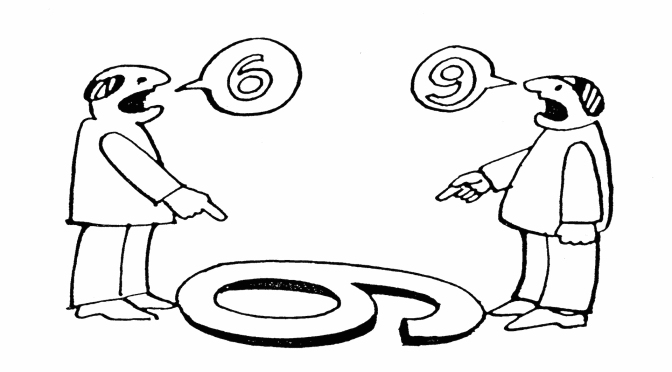“You oughta be shot. Or stabbed. Lose a leg. To be a surgeon, you know? Know what kind of pain you’re dealing with. They make psychiatrists get psychoanalyzed before they can get certified, but they don’t make a surgeon get cut on. That seem right to you?” – Jubal Early, Firefly (2002)
When I was young, I would wonder how other kids in my class, who were not Mormons, could not see that The LDS Church was the living and restored gospel of Jesus Christ. How did I know? How was I so sure? They told me at church. They told me at General Conference. My parents, aunts, uncles, cousins, and grandparents all told me. It said so in The Bible, and The Book of Mormon. Heavenly Father gave us these sacred books to tell us how to behave, what was right, what was wrong, and what was true. How could anyone be so obtuse as to deny that? When I was old enough, I would even get up and proclaim my perfect knowledge from the pulpit; “I know this church is true.”
Of course, later, I lost that perfect knowledge and faith. As I did, I began to empathize more and more with those who had doubted my previous point of view. They weren’t being obtuse, or hateful and evil. They weren’t just a bunch of “anti-Mormons” leading us from the straight-and-narrow. Either they believed, just as fiercely, in their own chosen faith, or they saw holes, contradictions, and logical fallacies in the claims of my former church. Just as believers had reasons to believe, doubters had reasons to doubt.
The experience of being so fiercely on one side of a debate, then having to admit that one was completely wrong, is a difficult but ultimately healthy one. It bestows a welcome gift of empathy that can be gained by no other means. Whether in religious discussions, moral, ethical, or political debates, there is no greater tool than understanding the position of the opposition, no matter how wrong it may seem to you. I believe the experience of believing gave me a better ability to understand why someone might feel that I am wrong, or even why they might feel threatened by my point of view.
When a business says that they are Christian, and won’t serve LGBT people because it’s immoral – I can empathize with the why, though I believe them to be completely wrong. Could they say the same? When believers get upset that “them damned atheists” are trying to move a Ten Commandments monument out of a courthouse, I empathize with their reaction. I think I understand, as much as anyone can, how they believe the action to be a attack on their faith and traditions, even though I don’t see it the same way. But, are those believers able to, for a moment, suspend the concrete assurance that they cannot be wrong, for the purpose of trying to understand how in His name someone like me may feel differently?
